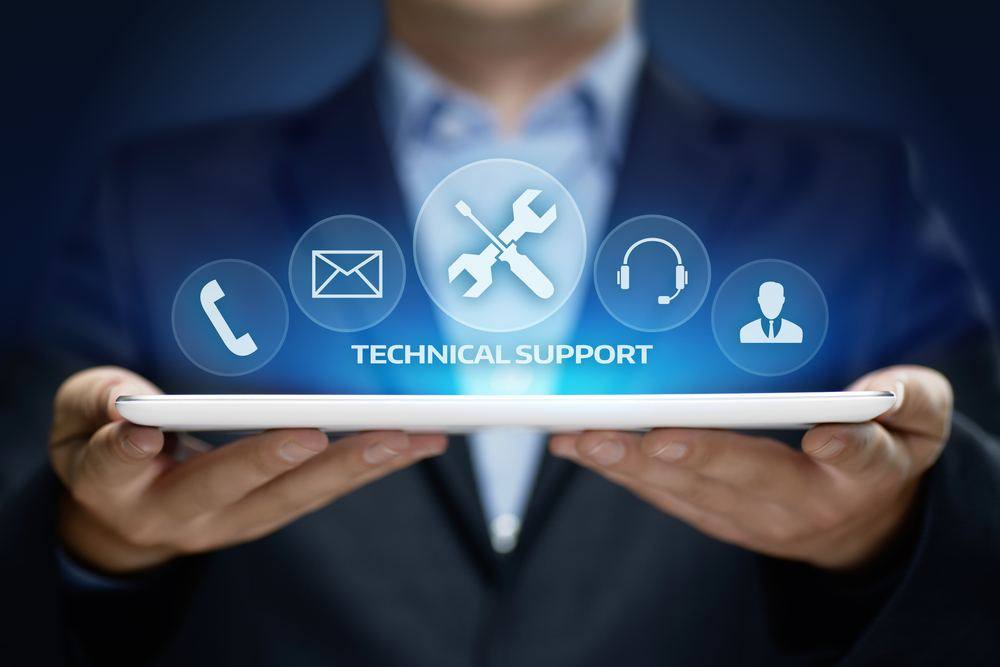What’s Next For IT Support Services in 2023 And Beyond?

IT Support Services have to evolve to keep up with the continuous digitisation of businesses. In some cases, the upheaval caused by the recent coronavirus pandemic accelerated digital adoption.
Whilst some companies are adapting to digitalisation fairly well in the post-pandemic era, others are experiencing a growing number of problems. The cause of the problems are attributed to various reasons and are beyond the scope of this article.
Part of the problem is that a large number of IT professionals that work in-house have spent their entire careers working with traditional IT solutions. As firms make a switch to cloud computing, artificial intelligence and other cutting-edge technologies, IT professionals suddenly find themselves without the relevant skills and knowledge.
When I say that, it is not with the intention of knocking in-house IT professionals to discredit the valuable work they do. But it should be understood that emerging technologies do require a different skillset – and most emerging digital solutions have a steep learning curve. In short, they require specialist knowledge.
Boardroom executives recognise they have to continuously keep up-to-date with the latest IT technologies in order to compete in the market, grow their business and meet demand. Critical IT infrastructure – from internal operations and customer interactions – is predominantly more and more digitised.
According to a McKinsey survey concerning the digitisation of businesses in the post-pandemic era, 64 per cent of respondents say their companies need to build new digital businesses to help the business remain profitable and survive.
As even more digital products penetrate the market, companies may have to rely on remote IT support staff that have specialist knowledge of the latest technologies such as cloud platforms, artificial intelligence, cybersecurity solutions and more.
Managed IT support teams have powerful tools and trained specialists that enable them to adjust business systems, fix issues quickly, identify potential security threats, secure networks and much more. Let’s take a closer look.
More IT Support For Remote Workers
The office landscape has undergone a dramatic shake-up in the last couple of years. Whilst the pandemic forced many UK businesses to adopt remote working strategies, the general consensus from employees is that they want to continue working flexible hours from home.
It does seem that remote working is here to stay – for the foreseeable future at least. Employees save time and money by not having to commute and they can use that time and money to enhance their much-coveted work-life balance.
The Office of National Statistics reported that 8 in 10 workers forced to work from home during the pandemic want to share their time between home and office. The number of UK businesses that have already adopted the hybrid model jumped from 13% to 24% between February and May this year.
With more employees choosing to work from home more often, in-house IT departments and small business owners need to develop novel IT strategies that create a seamless working environment for remote workers and give them access to IT support services.
One of the leading problems expected by IT strategists is a slowdown of home Wi-Fi networks. Having access to fast internet speeds that deliver reliable performance, enhance productivity and support mission-critical communications has to be a priority.
A simple solution is for homeowners to switch to next-generation Wi-Fi 7 networks. Alternatively, the roll-out of 5G networks will increases upload and download speeds delivered by traditional ISPs. The Connected Nations reports there are over 6,500 5G base stations across the UK.
Managed IT support services take advantage of the latest broadband technologies to meet the demands of their customers for perfect Wi-Fi. Whilst we expect internet service providers to struggle with the increased usage demands, skilled IT professionals take a deep dive to remove possible sources of interference to ensure connectivity is fast and reliable.
Personalised IT Support Customer Service
Customisation and personalisation are typical buzzwords you hear banded about around customer service. Whilst you should expect an IT support service to be tailored towards your precise needs, personalised service is harder to find.
The priority for most customers, of course, is to receive an effective service. Research performed by CallMiner found that 90% of consumers will stay loyal to brands after positive customer service. However, 73.7% said they would switch to a rival provider after a poor customer experience or ineffective service.
Whilst most end-users contacting an IT support helpdesk are employees, the customer is essentially the company they work for. Delivering personalised customer service has to go beyond frontline staff right the way through the company and into the boardroom.
Delivering a personalised service continues to be an aim among IT support service desks. The trend is expected to expand in 2023 and beyond as managed IT providers work closely with decision-makers and in-house IT professionals to develop IT networks that effectively help to grow a business.
Great customer service is based on emotional factors and – taking the lead from Google – providing “micro-moments” underline that IT service providers understand your business. Micro-moments are providing the customer with the things they want when they want them.

Adopt Machine Learning for Faster Resolution
A combination of machine learning features will help to power customer support experiences moving forward. IT customer service teams will have instant access to collective expertise describing best practice solutions in just a few clicks.
The infusion of big data has created professional silos that record applied solutions and performance data for all types of IT issues IT support service teams typically face on a daily basis. The emergence of new technologies means new problems also arise.
New issues naturally take longer to resolve because technicians first have to identify the root cause of the problem. However, without prior experience to determine why a system is experiencing a particular issue, it can easily take a least a couple of hours to identify the problem and apply the appropriate fix.
Machine learning has been used to mitigate the challenge of recognising IT issues. Resources including incident solution matching enable technicians to identify technical solutions faster.
Artificial intelligence is also capable of performing ‘self-healing’ and preventative diagnostics in cloud environments. Machine learning continually monitors your business network, detects irregularities which could cause potential problems and where possible fixes them in the background.
These types of machine learning solutions could effectively spell an end to the ticketing system. The potential to resolve IT issues quickly, or before they happen, reduces IT support desk queues.
More IT Support Services Around Cybersecurity
As cybersecurity trends continue to evolve and expand, there will be a greater reliance on cybersecurity services and cost-effective solutions. Cybercrime specialists will be expected to stay abreast of the latest technologies and techniques hackers are using against targeted businesses.
In 2022, phishing attacks continue to be the dominant method of attack. Ransomware is also becoming increasingly used. Earlier this year, it was discovered that hackers were dropping malware-infected documents into Microsoft Team chats.
Hackers access business networks through a series of “vulnerable” gateways. Cybersecurity specialists will be able to identify the areas where you are most vulnerable and implement solutions. This requires a blend of technology solutions but should also include user awareness.
However, using the services of cybersecurity firms is expensive because they rely on a single service to fund their business. A growing number of IT support companies also offer cybersecurity solutions at a lower cost despite using more or less the same technologies and techniques to keep threat actors out.
Given most successful cybersecurity attacks are caused by human error, raising awareness of the threat of cyberattacks should be a priority. Cybersecurity awareness training involves identifying where threats are possible, how to identify them and what to do about them.
Cybersecurity awareness training cannot be a one-off. Bad actors represent a continuous threat, the defences within the ranks of your workforce also have to be continuous.
Outsourced IT professionals are on hand to provide ongoing support – working either with your in-house team or providing relevant training and continuous updates as and when needed.
We expect more IT support service providers to invest in machine learning tools in order to deliver a full-stack IT/cybersecurity solution. Cyber defences have moved on beyond anti-virus software and firewalls. This will make utilising the new generation less expensive for SMEs to access.
Machine learning revolutionises cybersecurity systems by identifying the behaviours of attackers and preventing their attacks to progress beyond the first base. These new-gen tools should also reduce the time and cost of enabling experts to perform relevant tasks that sure up your network’s defences.
IT Infrastructure Planning
Over the next couple of years, we’re expecting more businesses to adopt a hybrid working model. Creating a hybrid workplace gives you the opportunity to redesign your IT architecture infrastructure – digitally and physically.
A hybrid work model will typically involve investing in modern technologies – most notably cloud computing tools. The expertise offered by outsourced IT professionals that specialise in cloud computing is invaluable – especially if you plan to continue using legacy systems.
Businesses that plan to relocate to a new office to accommodate a hybrid model, also have the opportunity to remodel their in-office IT infrastructure and set up a system that supports their business needs.

Adopting cloud technologies could even reduce your outgoings because there are no hefty costs to pay upfront and pricing models are geared towards a pay-as-you-use plan. Cloud solutions are generally less expensive than installing and maintaining on-site IT infrastructure.
Moving to new office premises is the ideal time to install a layout that will support the requirements of your staff – particularly if you plan to adopt an agile office workplace. The most common complaint we hear from IT professionals is, “nobody told us until it was too late.”
Increased Demand for Skilled IT Professionals
The increasing pressure for businesses to digitalise their business in the last few years has highlighted that the UK has a worrying skills shortage. Last year, researchers showed that 66% of businesses searching for in-house IT professionals were unable to fulfil job openings.
The fact of the matter is that the demand for IT specialists outweighs the number of IT professionals that have the relevant skills and knowledge of the latest digital technologies.
Subsequently, businesses are turning to managed IT support providers to support – or even replace – their in-house IT team. Whilst in-house IT professionals are an invaluable link for outsourced IT teams to collaborate with, a high number of small businesses will find it more cost-effective to work with a managed IT company than hiring an entire team of full-time IT professionals.
The IT professionals at Micro Pro endeavour to deliver fast, reliable and satisfactory customer service. With an award-winning IT support service helpdesk and experienced senior management team, we cover every aspect of IT management, support, repairs, installation, planning and strategy.
Not only that, but we recognise the importance of providing personalised customer service that meets your demands when you expect it. If you’re looking for forward-thinking IT support services in London get in contact today and speak to a knowledgeable member of our team.


